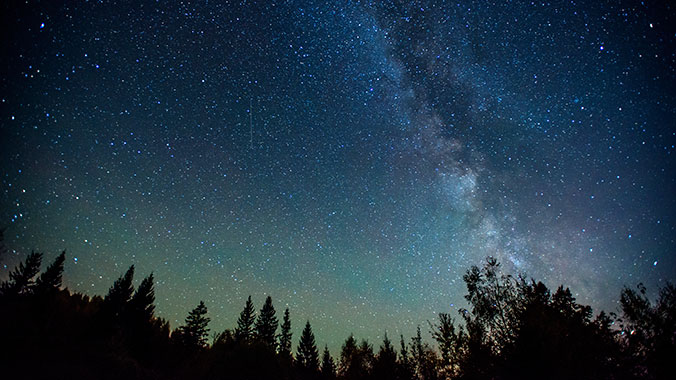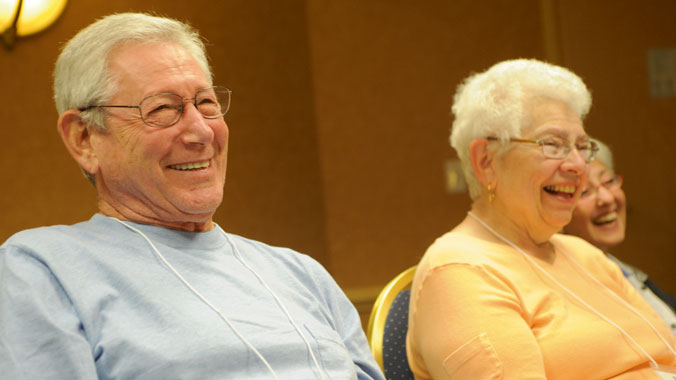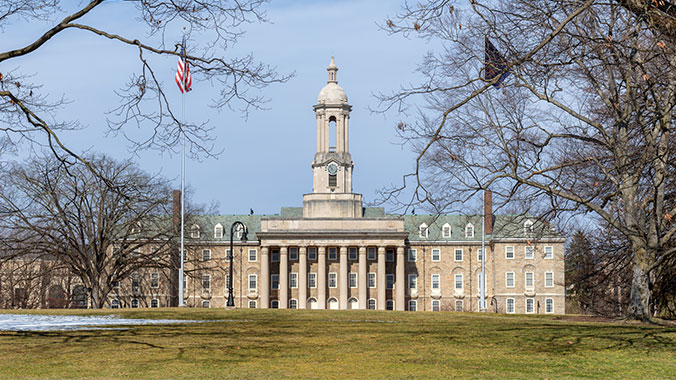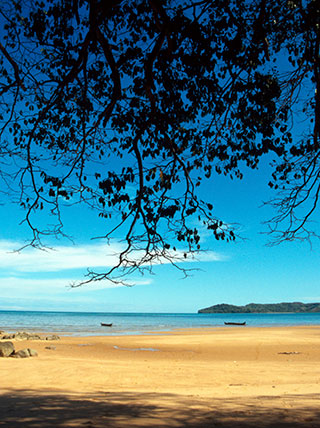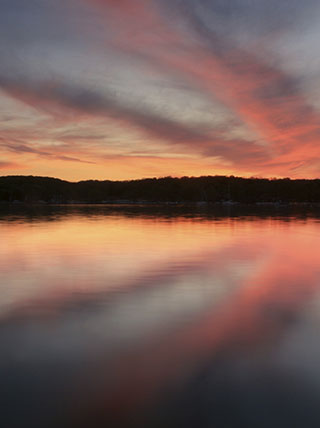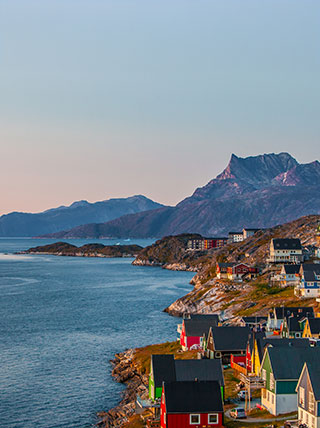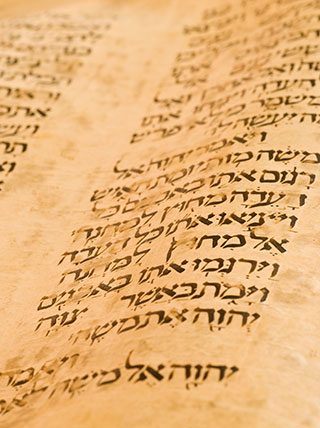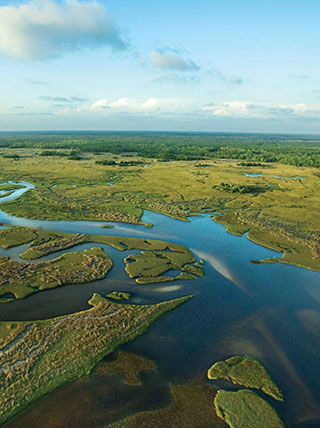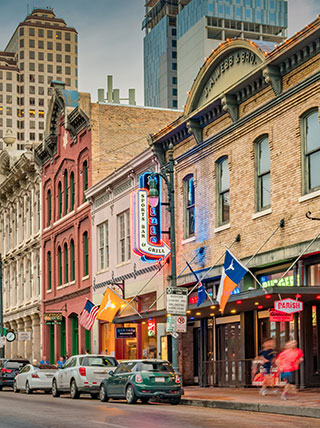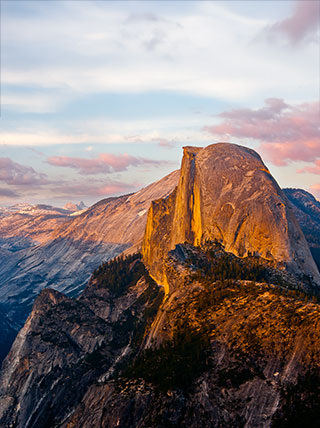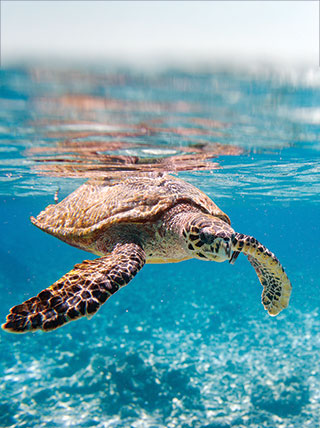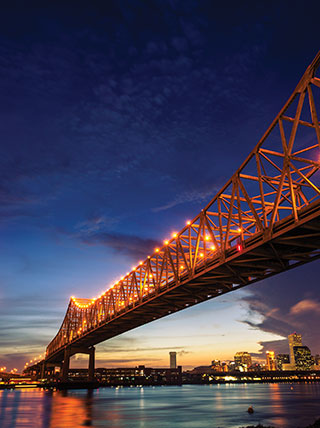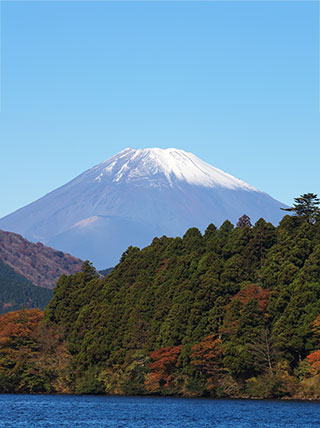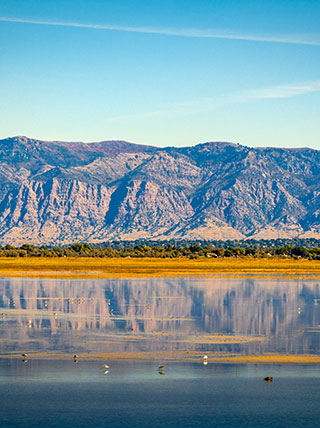
Pennsylvania
A Week With the Scientists at Penn State University
Program No. 14314RJ
Discover the science behind searching for planets, weather forecasting and materials used for energy through captivating discussions and exciting excursions with Penn State experts.
Enroll with Confidence
We want your Road Scholar learning adventure to be something to look forward to—not worry about. Learn more
Protecting the Environment
We offset a portion of the emissions created by your travel. Learn more
6 days
5 nights
13 meals
5B 4L 4D
1
Registration, Welcome Dinner, Orientation, Meteorology Intro
University Park/State College, PA
2
Forecasting Fundamentals & Weather Analysis
University Park/State College, PA
3
Field trip, Satellite Imagery & Observational Networks
University Park/State College, PA
4
Hurricanes, field trip, Weather on the Web, Office Hours
University Park/State College, PA
5
Severe Weather, Human Impact, office hours, guest speaker
University Park/State College, PA
6
Professor Breakfast, Wrap-Up Session, Program Concludes
University Park/State College, PA
At a Glance
The sky is not the limit on this learning adventure! Choose your week to study astronomy, meteorology, or material sciences, alongside some of the nation’s leading scientists at Penn State University. Behind-the-scenes excursions and expert-led discussions allow for the exploration of asteroid impacts, weather patterns, and the discovery, design and use of solid materials, while using the most cutting-edge technology the university has to offer. Learn about detecting black holes, discover how the universe was created, and gain a deep understanding of glass and ceramics with Penn State experts.
Activity Level
Easy Going
A trolley is available to transport participants from the hotel to the campus.
Best of all, you’ll…
- Learn about engaging topics like astronomy, meteorology and material sciences.
- Spend a week on the Penn State University campus, attending lectures with university professors.
- Step outside the classroom and view astronomical objects through a variety of telescopes, visit a TV weather studio to learn how to read radar and understand numerical weather prediction, or participate in 3D printing and building your own solar cell.
Featured Expert
All trip experts
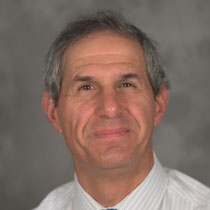
Jon M. Nese
Jon is associate head of undergraduate programs and a teaching professor in the Department of Meteorology and Atmospheric Science at Penn State, where he teaches a variety of undergraduate courses. He was previously chief meteorologist at the Franklin Institute in Philadelphia and on-air storm analyst at The Weather Channel. He has co-authored two books: "The Philadelphia Area Weather Book," which received the 2005 Louis J. Battan Author’s Award from the American Meteorological Society, and a college-level introductory textbook, "A World of Weather: Fundamentals of Meteorology."
Please note: This expert may not be available for every date of this program.

Bill Syrett
View biography
Bill Syrett was born in Bristol, Conn. and has been fascinated by weather that most people consider "bad" since he was five years old. He received B.S. and M.S. degrees in meteorology and was then hired by Penn State as a research assistant. In 1995 he began his tenure as the manager of Penn State's University Park weather observatory, now the Joel N. Myers Weather Center. In that position, he oversees the daily recording of official cooperative weather observations for State College, Penn.

Jon M. Nese
View biography
Jon is associate head of undergraduate programs and a teaching professor in the Department of Meteorology and Atmospheric Science at Penn State, where he teaches a variety of undergraduate courses. He was previously chief meteorologist at the Franklin Institute in Philadelphia and on-air storm analyst at The Weather Channel. He has co-authored two books: "The Philadelphia Area Weather Book," which received the 2005 Louis J. Battan Author’s Award from the American Meteorological Society, and a college-level introductory textbook, "A World of Weather: Fundamentals of Meteorology."
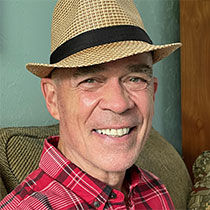
Nolan Hines
View biography
Nolan Hines is a native Ohioan, born on a farm just south of Columbus. He attended Ohio State University intending to become a veterinarian, the became involved in singing and theatre activities. He spent eight years on the ships of Holland America Line as an entertainer, excursion assistant, and cruise director, then four years aboard The American Queen steamboat. Nolan now lives in Florida and since 2017 has enjoyed discovering the treasures of new places and helping participants to enjoy cultural highlights with Road programs.

Stephanie Law
View biography
Stephanie Law received her B.S. and Ph.D. in physics from Iowa State University and the University of Illinois Urbana-Champaign, respectively. She was employed as a postdoctoral researcher in electrical engineering at the University of Illinois Urbana-Champaign. She joined the University of Delaware as the Clare Boothe Luce Assistant Professor of Materials Science and Engineering in 2014, and joined the Department of Materials Science and Engineering at Penn State University in 2023. She is an associate editor for the Journal of Vacuum Science and Technology.

Chris Palma
View biography
Chris is a senior lecturer in astronomy/astrophysics at Penn State's University Park campus. He earned a BS with dual majors in astronomy/astrophysics and physics from Penn State in 1994 and a PhD in astronomy from the University of Virginia in 2001. Chris specializes in presenting the science of astronomy to audiences in a number of informal settings. Chris has co-taught Road Scholars on modern astronomy at Penn State and has also taught courses for seniors through the Osher Institute for Lifelong Learning in State College.

Kevin Luhman
View biography
Kevin Luhman received a B.A. in astronomy and a B.S. in physics from the University of Texas at Austin and a Ph.D. in astronomy from the University of Arizona. He was a postdoctoral fellow at the Harvard-Smithsonian Center for Astrophysics and is now an associate professor at Penn State University. Kevin has used optical and infrared telescopes such as the Hubble Space Telescope and the Spitzer Space Telescope to study the birth of stars and planets.
Suggested Reading List
(7 books)
Visit the Road Scholar Bookshop
You can find many of the books we recommend at the Road Scholar store on bookshop.org, a website that supports local bookstores.
A Week With the Scientists at Penn State University
Program Number: 14314
Space: 10 Things You Should Know
This book is for anyone who wants to easily understand the mind-blowing fundamentals of our extraordinary, expanding universe.
Written by Oxford astrophysicist Dr Becky Smethurst and composed of ten captivating, simple essays, it guides you swiftly through the galaxies, explaining the mysteries of black holes, dark matter and what existed before the Big Bang, presenting the evidence as to whether we really are alone, illuminating what we still don't know, and much more besides.
If you have big questions about Space, this book will provide you with the answers in an engaging and succinct way.
Our Universe: An Astronomer’s Guide
Dunkley takes her readers on a grand tour of space and time, from our nearest planetary neighbors to the edge of the observable Universe. The book follows a well-trodden path, starting with an overview of the history of astronomy and a description of our Solar System. Stellar evolution is next, followed by galaxies, clusters and the mystery of dark matter. The birth, evolution and future of the Universe are discussed in the final chapters. Explanations are always clear, metaphors are to the point and arguments easy to follow. If you feel like refreshing your background knowledge, or are looking for a present for your curious niece or nephew, this little gem certainly won’t disappoint.
The Backyard Astronomer’s Guide – 4th Edition
This classic, groundbreaking guide has been the go-to field guide for both beginning and experienced amateur astronomers for nearly 30 years. The fourth edition brings Terence Dickinson and Alan Dyer's invaluable manual completely up-to-date. Setting a new standard for astronomy guides, it will serve as the touchstone for the next generation of stargazers as well as longtime devotees.
The Stargazer's Sister
Based on the life of Caroline Herschel, sister of famed astronomer William Herschel, who discovered several comets but struggles to be seen as anything more than her brother's sister.
The Martian: A Novel
Six days ago, astronaut Mark Watney became one of the first people to walk on Mars. Now, he’s sure he’ll be the first person to die there. After a dust storm nearly kills him and forces his crew to evacuate while thinking him dead, Mark finds himself stranded and completely alone with no way to even signal Earth that he’s alive—and even if he could get word out, his supplies would be gone long before a rescue could arrive. Chances are, though, he won’t have time to starve to death. The damaged machinery, unforgiving environment, or plain-old “human error” are much more likely to kill him first.
A Brief History of Time
A landmark volume in science writing by one of the great minds of our time, Stephen Hawking’s book explores such profound questions as: How did the universe begin—and what made its start possible? Does time always flow forward? Is the universe unending—or are there boundaries? Are there other dimensions in space? What will happen when it all ends?
Told in language we all can understand, A Brief History of Time plunges into the exotic realms of black holes and quarks, of antimatter and “arrows of time,” of the big bang and a bigger God—where the possibilities are wondrous and unexpected. With exciting images and profound imagination, Stephen Hawking brings us closer to the ultimate secrets at the very heart of creation.
Constellations: The Story of Space Told Through the 88 Known Star Patterns in the Night Sky
This lavishly adorned guide to all 88 constellations in the night sky, complete with an illustrated star map for each one by esteemed stellar cartographer Wil Tirion, provides the exact location of every constellation, the details of its structure, and data on its surrounding astronomical neighbors.
Award-winning astronomy writer Govert Schilling takes us on this splendid visual tour, offering a complete history of astronomy via the lens of the constellations themselves. Organized alphabetically by constellation, his stargazing companion profiles each shining formation and includes basic info including size, visibility, and number of stars, as well as information on the discovery and official naming of the constellations and associated legends surrounding them.

